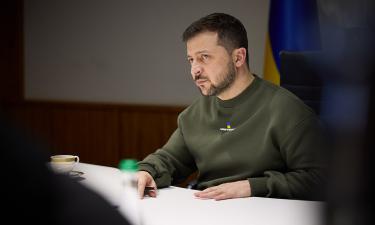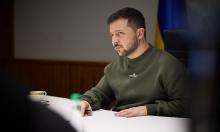Rosbank Changes Its Development Strategy Fundamentally
The bank is strongly determined to become a leading Russian bank
Long-expected changes in Rosbank have finally taken place. Andrey Bugrov, the chairman of Rosbank’s Board of Directors, sent in his resignation. From now on he will work at Interros holding - he will take the position of the deputy chairman of the holding’s administration. His position at Rosbank was taken by Evgeny Ivanov. This person will now be in charge of the issues of strategic development and shareholder control. Alexander Popov was appointed to chair Rosbank’s Board of Directors.
These changes in the administration of the bank are connected with the start of the new strategy implementation. The strategy is meant for the period of 2003-2007. The top management of the bank has to solve several uneasy problems in order to make Rosbank become a large universal financial institution that would take a leading position in Russian banks rating. As it turns out, Interros holding – the shareholder of Rosbank’s control stock of shares – is even ready to give up the control for that.
Yevgeny Ivanov, the new president of the bank gave the following explanation regarding the development of the new concept. At present moment Rosbank takes the space of only one percent in several branches of the Russian banking market. One may not say that the shareholders are absolutely happy with such a state of things. They would like to increase the bank’s presence up to the level of six percent. In addition to that, the demand balance growth on corporate clients’ accounts has slowed down for the moment. Such a perspective branch of the banking market as working with natural persons’ attracted funds has not played an important role in Rosbank’s activity lately (disregarding VIP clients servicing, of course).
As Rosbank’s official press release mentioned, the bank is supposed to become a large universal commerce bank as a result of the implementation of the new strategy. As the administration of the bank believes, Rosbank will take a stable position in top five of Russia’s private financial institutions. The key directions of its activities will include commercial, investment and retail activities. The bank is intended to expand its presence in Russia’s regions as much as possible. The bank is going to set up the network of its subsidiaries as well as electronic sales channels in economically dynamic regions of the country. In addition to the work with corporate clients, the bank plans to pay special attention to retail activities. Particularly, Rosbank is intended to attract approximately 2.7 billion dollars from about a million of natural persons.
It is worth mentioning here that the present leaders in terms of attracting deposits from the Russian population are: Sberbank (638.78 billion rubles and 70.12% of the market), Alfa-Bank (20.59 billion rubles and 2.26% of the market), the Bank of Moscow (14.79 billion rubles and 1.64% of the market).
There are no doubts that the major goal of the new strategy is to increase the investment attraction of the bank and to sell a certain part of its stocks to other investors. In the words from Andrey Bugrov, Interros holding is ready to refuse from the control stock of shares of the bank for those purposes, and to simply remain a large shareholding owner. This would be a right thing to do. Interros’s reputation of the main financial instrument, as well as the fact that the holding was the only large shareholder, restricted the growth of Rosbank’s capitalization, which restrained potential investors. “Our prime goal is to stop being the direct association of Interros. We want to become an independent business that would be interesting and attractive for various investors,” Yevgeny Ivanov asserted. Rosbank has already made its first step in that direction: it exposed the joint stock structure at the end of the past year. As it was announced, 75% of Rosbank’s shares are owned by Interros, 20% are owned by the oil giant Surgutneftegaz, and five percent of shares belong to minor shareholders.
The Board of Directors of the bank is going to dissipate all doubts for shareholders: the board is going to recommend the meeting of shareholders to pay the dividend for the year 2002. The bank has not practiced that before. The investment yield of the bank is supposed to reach the level of twelve percent per annum in the future. As it is planned, the market value of Rosbank's shares against the balance value is not to be lower than the proportion of 7:1 by the year 2007. The capital of the bank is to exceed the sum of $650 million by the same year. If everything goes alright, Rosbank will be ready to enter the public stock market.
Reference:
Yevgeny Ivanov was born in 1966. In 1990 he graduated from the Moscow State Financial Institute, the department of international economic relations. After the graduation, he worked at the State Bank of the USSR, at the Central Bank of the Russian Federation. In 1997 he started working at ONEKSIMBank, where he set up the department for precious metals. He has taken the position of the administration chairman of Joint-Stock Commerce Bank Rosbank since September 2000 to February 2003.
Alexander Popov was born in 1970. In 1991 he graduated from the Moscow People’s Economy Institute, the department of finances and credits. He took the position of the chief of the currency and financial operations department during the period 1991-1995. From 1995 to 1998 he was a member of the administration, the chairman of ONEKSIMBank’s treasury. In 1998-2000 he executed the duties of the director of the treasury operations. In 2000 he took the position of the deputy chairman of Rosbank’s administration. During the period of 2001-2003 he also worked as the paymaster general, deputy general director of the joint-stock company Norilsk Nickel.
Akhtyam Akhtyrov
PRAVDA.Ru
Translated by Dmitry Sudakov
Subscribe to Pravda.Ru Telegram channel, Facebook, RSS!




